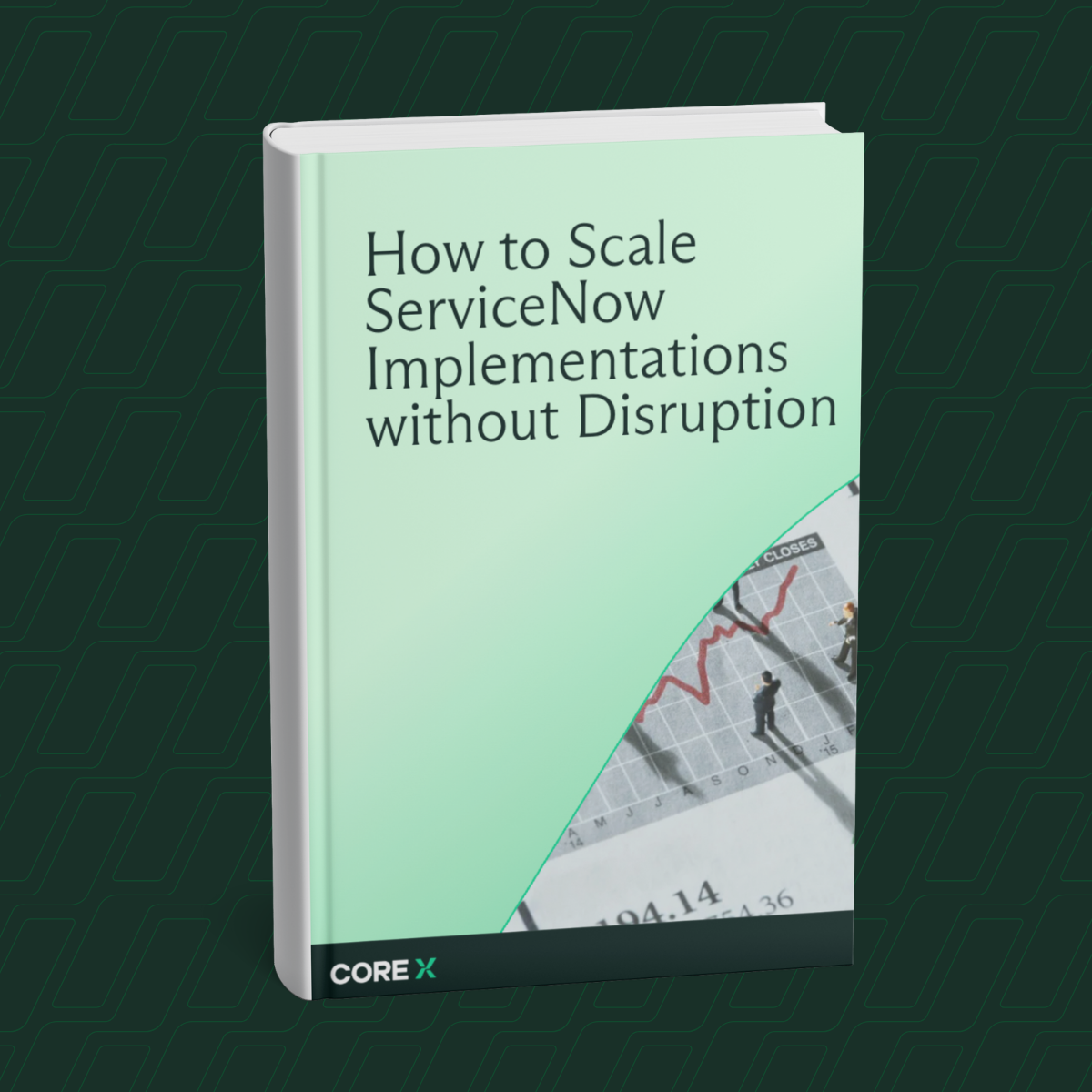

ServiceNow is no longer just claiming a seat at the enterprise table. It's rebuilding the entire room. As the platform prepares to unveil its latest quarterly performance and showcase its vision at Knowledge 2025, industry insiders are buzzing about the way ServiceNow is methodically executing a master plan to become an indispensable operating system for modern enterprises.
The signs are everywhere: Strategic acquisitions, leadership changes, and bold market maneuvers that collectively signal a company poised for market dominance. For senior executives, the question isn't whether ServiceNow is expanding its footprint but how quickly you'll need to adapt.
The Expanding ServiceNow Universe
ServiceNow has evolved far beyond its ITSM roots. Rather than simply bolting on features, it’s been acquiring and developing capabilities that allow it to serve as the central nervous system for enterprise operations, from HR to finance to customer service.
This expansion has been deliberate and strategic. The question for executives isn't whether ServiceNow is expanding its footprint but how these expansions align with your organization's digital transformation goals.
The Logik.io Acquisition: ServiceNow's bold play for CRM dominance
ServiceNow's recent acquisition of Logik.io is a strategic chess move in the company's quest to reimagine customer relationship management. By acquiring advanced CPQ (configure, price, quote) capabilities, ServiceNow isn't merely adding a feature; it's building the critical infrastructure needed to deliver a next-generation CRM experience.
Traditional CRM systems have excelled at tracking customer interactions but often falter when complex configuration and pricing scenarios emerge. This is precisely where ServiceNow is striking. By integrating Logik.io's configuration engine into its platform, ServiceNow can now offer what traditional CRM platforms have struggled to deliver: a truly seamless journey from customer interest to fulfilled order.
For enterprise leaders, this move signals ServiceNow's commitment to becoming the central command center for all customer-facing operations. The platform that already manages your internal workflows will soon orchestrate and redefine your customer relationships with the same level of automation and intelligence by connecting customer interactions directly to the operational backbone of your business.
The implications for organizations are profound: imagine a CRM system that doesn't just track sales opportunities but automatically configures complex product offerings, generates accurate quotes, and seamlessly hands off to fulfillment systems, all while maintaining a single source of truth across the enterprise.
Follow the Leader
Though three years have passed since the appointment of ServiceNow's Chief Marketing Officer, Michael Park, this move set the foundation for the company's ambitions in the CRM space. The new CMO's Salesforce background provides valuable insights into how ServiceNow might position itself against established CRM players.
As such, we can expect more emphasis on industry-specific solutions, enhanced customer experience capabilities, and messaging highlighting ServiceNow's unique ability to connect customer-facing processes with back-office operations, something traditional CRM systems have struggled to deliver.
Global Business Services: The integration imperative
ServiceNow's growing focus on Global Business Services (GBS) reflects the reality that enterprise leaders face: siloed operations are no longer sustainable. While GBS has been part of the ServiceNow DNA for the better part of the decade, today’s GBS approach represents a more integrated, cross-functional model that aligns with how modern enterprises need to operate.
By strengthening its GBS capabilities, ServiceNow is addressing the challenge of connecting diverse business functions, from HR and IT to customer service and finance, into a coherent operational model. For executives leading transformation initiatives, this evolution offers potential solutions to the persistent problem of functional disconnection.
The platform's ability to orchestrate end-to-end processes across departmental boundaries creates opportunities to reimagine service delivery models. Organizations that have struggled with fragmented services and inconsistent experiences may find that ServiceNow's GBS approach provides the connective tissue they've been missing.
AI, From Feature to Foundation
While artificial intelligence has been part of the ServiceNow narrative for years, recent developments suggest a shift from AI as a feature to AI as a foundational element of the platform. You might have noticed we’ve been covering NOW’s AI advances pretty extensively lately, especially here and here. (And also here.)
But why are we spending so much focus? NOW’s AI evolution aligns with broader enterprise needs as organizations move from exploratory AI projects to embedding intelligence into core business processes.
ServiceNow's AI strategy appears focused on practical applications that deliver immediate business value: intelligent routing, predictive analytics, automated service resolution, and decision support. For executives concerned about AI's tangible impact, ServiceNow's approach offers a refreshing focus on operational improvements rather than speculative possibilities.
Features like Now Assist for ITSM and Customer Service Management showcase how ServiceNow embeds generative AI directly into workflows, cutting resolution times and improving knowledge reuse without overwhelming teams.
The question for enterprise leaders isn't whether to incorporate AI but how to do so in ways that enhance rather than disrupt existing processes. ServiceNow's integration of AI into workflow automation provides a potential blueprint for a more balanced approach.
Industry Verticalization and Digitizing Manufacturing
Perhaps the most telling thing about ServiceNow's direction is its increased emphasis on industry-specific solutions, with manufacturing receiving particular attention. This vertical focus represents a maturation of ServiceNow's market approach, recognizing that different industries have unique requirements that horizontal platforms must address.
ServiceNow's industry-specific offerings present opportunities for manufacturing leaders to address persistent challenges: supply chain visibility, operational efficiency, quality management, and regulatory compliance, through a unified platform approach. The potential to connect shop floor operations with enterprise services creates possibilities for new levels of manufacturing intelligence and responsiveness.
This verticalization strategy suggests that ServiceNow is evolving from a general-purpose workflow platform to a provider of industry-specific business solutions. For executives in targeted industries, this shift promises more relevant capabilities without the customization burden typically associated with horizontal platforms.
What to Watch at Knowledge 2025 (and Questions to Be Answered)
As ServiceNow prepares for its flagship Knowledge conference, we anticipate that several key themes will dominate the conversation:
- Further details on how the Logik.io acquisition will enhance ServiceNow's CPQ and CRM capabilities
- Expanded vertical offerings, particularly in manufacturing and other capital-intensive industries
- Enhanced AI capabilities that move beyond automation to true augmentation of knowledge work
- New GBS frameworks that help organizations implement integrated service models
- Potential partnership announcements that extend ServiceNow's reach into adjacent solution areas
These announcements will provide valuable signals for enterprise leaders about where to focus ServiceNow-related investments in the coming year. As ServiceNow continues its strategic evolution, executives face important decisions about how to leverage this expanding platform. The key questions to consider include:
- How might ServiceNow's enhanced CPQ capabilities transform your sales operations?
- Could a GBS approach using ServiceNow help break down operational silos in your organization?
- Are your AI initiatives delivering tangible value, and could ServiceNow's embedded AI approach provide a more sustainable model?
- Do ServiceNow's industry-specific solutions address your unique vertical challenges?
As the platform continues to evolve, working with partners who understand both the technology and the business implications becomes increasingly valuable for organizations seeking to maximize their ServiceNow investments.
The coming earnings announcement will undoubtedly provide new insights into ServiceNow's trajectory. Whatever direction the company takes, one thing remains clear: ServiceNow is becoming an enterprise business platform with ambitions that extend into every corner of the modern organization.
The next phase of ServiceNow’s journey will be on full display at Knowledge 2025. Whether you're in finance, ops, HR, or IT, one question should be top of mind: Are you ready to view ServiceNow as more than a platform and start using it as your enterprise operating system?



